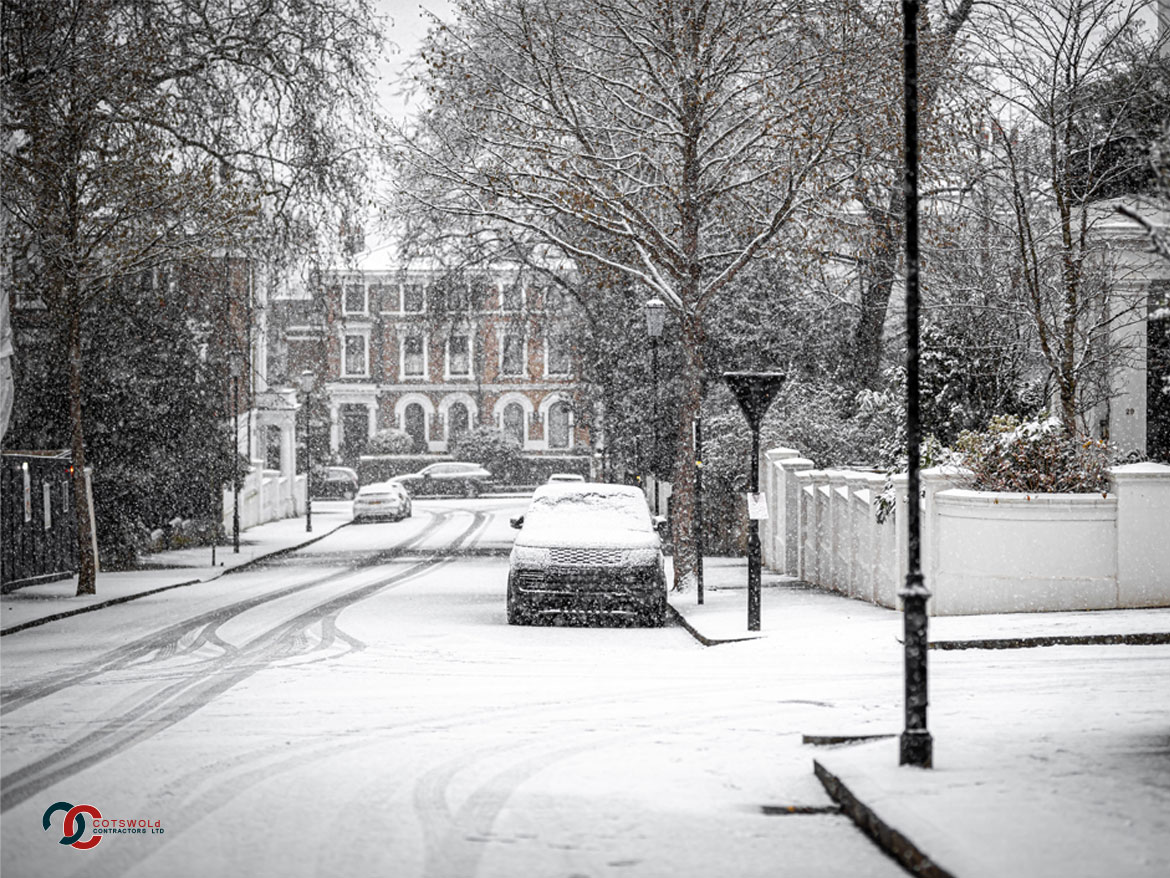The building trade can suffer severe delays in the winter months due to adverse weather conditions. The main aim of builders is to keep sites open throughout the year, but it can be a struggle when there are heavy snowfalls or prolonged periods of frost leading to delayed projects and even higher costs for those involved. The main aims of any building firm are;
- Keeping sites open
- Keeping customers informed
- Working together as a team
The building trade is a very time-sensitive industry. The weather can be unpredictable, which will have a knock-on effect on projects and new construction. If you are looking to embark on a project, you should ensure that your chosen company has experience in working under adverse weather conditions.
Keeping sites open
The main aim of any builders is to keep sites open throughout the year. They want to avoid weather delays that can result in delayed projects and increased costs, which means they will always try their best to get on with their work when the weather turns for the worst. It’s important to ensure that there are no delays on site because this would affect the project completion date and therefore increase costs. Weather conditions can cause problems for all the trades involved in the construction project For example:
- If it rains heavily, then bricklayers will have a hard time laying bricks because they need dry surfaces for building materials like cement blocks and bricks (especially if those materials have been left out in direct sunlight). They could also find themselves standing around waiting for these materials to dry off before they continue working with them.
- Roofing companies may be faced with slippery roofs during wet periods or high dangerous winds where roofers will struggle getting up high enough without falling off!
Frozen ground
One of the major problems faced by the industry with both ground workers and concrete pourers is having to deal with sub-zero temperatures. Frozen ground can make it difficult for machinery to operate and for people working on site, such as cement mixers. In addition, there is a risk that if too much water is used in creating concrete during freezing conditions there could be cracking issues within your structure. Further delays are caused when other trades can’t get onto a site for example roofers or even scaffold erectors. Roofers may not be able to get onto a site due to bad weather, especially if the ground is too wet and slippery. Scaffold erectors may also have problems getting on site, unless there is an area where they can erect their scaffolding before work starts on your property.
Heavy rainfall
With years of experience, we’re well adapted to working in wet conditions and drizzle or light rain doesn’t impact our ability to complete the job. However, heavy rainfall can mean that a day’s work gets ‘rained off’, subsequently delaying a project, not only for that day, but also by the time it takes for any clean-up that’s needed, including areas that may need to be pumped of water or dried out and debris that needs to be cleared before work can start again
Importantly, heavy rainfall can also cause damage to the works, with excavations collapsing, any unfinished elements being exposed to the downpour, such as materials and earthworks becoming saturated and waterlogged, and plant and surfaces being slippery when wet.
Storms
Bad storms and high winds can add even more setbacks to working conditions. If lightning is forecast, it’s time to down tools. Lightning is attracted to tall objects and so we would never put our workers at risk by allowing them to work in an exposed area, such as operating a crane, if there was a risk they could be struck by lightning.Storms accompanied by high winds can also cause disruption to a construction site. If high winds are blowing, avoid using lifting machinery or equipment as the wind can make it more difficult to operate safely and can increase the amount of dust being blown around. All companies that operate in the construction industry should have health and safety procedures in place for such storms.
At Cotswold Contractors, we’re resilient to extreme weather as we implement robust health and safety measures, as well as forward and contingency planning for such conditions. There is no denying that being able to complete projects on schedule during adverse weather is challenging but we keep our customers up to date on the progress being made and any delays that have been incurred.

